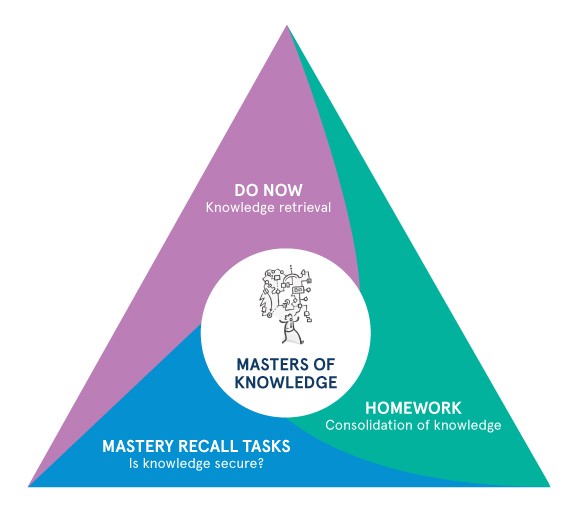Homework
At Longdendale, we view homework as a valuable opportunity to enhance our students' learning and prepare them for future challenges. Homework helps to consolidate what has been learned in school, lays the foundation for future independent study, and strengthens the partnership between home and school.
How We Set Homework
All homework will be set on Class Charts, informing students and parents and carers of what is required and the deadline by which activities should be completed. Staff will inform students of their homework during lessons, and tasks will be assigned through Class Charts. Parents and carers can view task details, deadlines, and resources on this platform. Resources can also be uploaded by staff and accessed by both students and their families. Submission is also tracked, and teachers can send reminder notifications to classes, parents and carers.
The weekly expectations of our students are as follows:
| Key Stage 3 | Key Stage 4 |
|---|---|
| 30 minutes of Masters of Knowledge work per day (five days per week) | 30 minutes of Masters of Knowledge work per day (five days per week) |
| 60 minutes of Sparx Maths per week | 30 minutes of Sparx Maths per week |
| 30 minutes reading and completion of the log in the Homework Reading Log | 30 minutes of reading per week |
| 30 minutes on a homework task from the Homework Reading Log per week - this task should be based on the book students are currently reading | 30 minutes (approx.) subject specific tasks per week |
Masters of Knowledge
This is work students should be completing in the booklets they have been provided with and using the ‘mastery sheets’ for each subject (available to view on our Curriculum by Year Group pages). On these sheets are questions identifying the substantive knowledge students need to know for each of their subjects. Students have been taught study methods (look, cover, write, check and flashcards) and should be completing these as part of their Masters of Knowledge homework.
Students practice recalling this knowledge twice a week in their morning Aspiration Briefings and at the start of each lesson in their Do Now activity. Teachers then check knowledge is secure through the Mastery Recall Tasks completed once per half term. The illustration below shows how Do Nows and Mastery Recall Tasks work with homework to create students that are Masters of Knowledge.

Sparx Maths
Sparx Maths is the platform we use as a school for the students to be able to have access to regular and meaningful practice of the topics they are studying in class. Sparx starts all students at the same level and as the year goes on and Sparx collects data on how the students are doing, it adapts the work level accordingly. Students must write the question code and their working out down, ideally in the back of their exercise books. Students will be set this homework each Friday and it is due each Thursday. There is also a section on Sparx Maths called independent learning, this is where students can search specific topics they are struggling on and revise these!
homework reading log
Students have been provided with a reading log by their English teacher. Each week they should spend at least 30 minutes reading a book of their choice - students can borrow a book from the library if they choose to do so. Students should then complete one of the homework tasks on the second page, based on the book they are currently reading. The students’ English teacher will either let students choose a task themselves or will direct them to a specific task from the list. In addition to this, students should complete one of the log pages based on the book they are currently reading.
Subject Specific Tasks (KS4 only)
These will be set by class teachers for Key Stage 4 students, requiring them to complete work that will either consolidate substantive knowledge or give students the opportunity to practise applying knowledge (disciplinary and procedural knowledge). This could take the form of work set on an online platform such as Seneca or an extended writing task such as an exam style question. Students should complete the work in their exercise books unless directed otherwise by their teacher.
Benefits of Homework
-
Accelerates learning: helps students make quicker progress.
-
Encourages independence: prepares students for GCSE exams and independent revision.
-
Provides practice: reinforces classroom skills.
-
Utilises additional resources: allows use of materials not always available in class.
-
Involves family: engages parents and carers in the learning process.
-
Teaches time management: gives students valuable experience in meeting deadlines.
-
Boosts confidence: supports self-esteem and confidence.
-
Links to mastery sheets: helps with long-term memory retention.
Homework commitment
Form tutors and Heads of Year will check that students are completing the ‘Masters of Knowledge’ work on a weekly basis. English and maths teachers will check students are completing their allocated time/tasks on the Sparx Maths platform and in the Homework Reading Log. For KS4 students, class teachers will check and track submission of subject specific tasks. Students’ commitment to homework is reflected in their completion of all tasks set.
This is assessed and reported each term, with grades ranging from:
-
Excelling
-
Engaged
-
Coasting
-
Disengaged
For Students
-
Check Class Charts daily: log in to Class Charts each day to review and complete your independent learning tasks.
-
Use mastery sheets: access the subject mastery sheets to guide your study.
-
Check school email: log in daily to check for resources and messages from teachers.
-
Develop independent study skills: use these skills to enhance your understanding across all subjects.
-
Read regularly: enjoy a range of reading materials, including your current reading book and various fiction and non-fiction texts.
-
Practise your maths: use Sparx Maths to improve your maths skills.
For Parents and Carers
-
Set up your Class Charts account: use your login code to create your account on Class Charts.
-
Monitor homework: log in daily to view your child’s independent learning tasks.
-
Support homework completion: encourage your child to complete their tasks each day and help them develop effective study habits. Contact your child's form tutor if you have any queries.
-
Promote reading/numeracy at home: ensure reading and maths are valued activities at home and support your child at home with using the Sparx online platform and the Homework Reading Log.
-
Discuss academic progress: engage in discussions about your child’s academic progress and use the mastery sheets to help them prepare for tests.
-
Check mastery sheets: use these to support your child's knowledge and recall.

